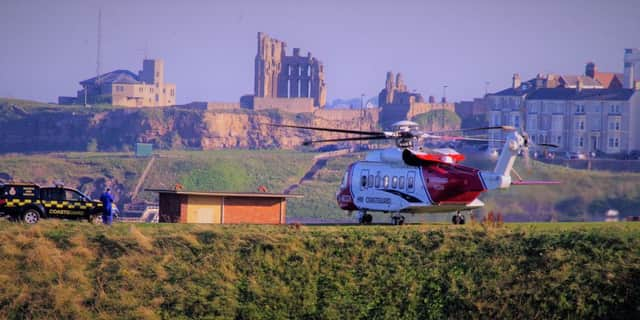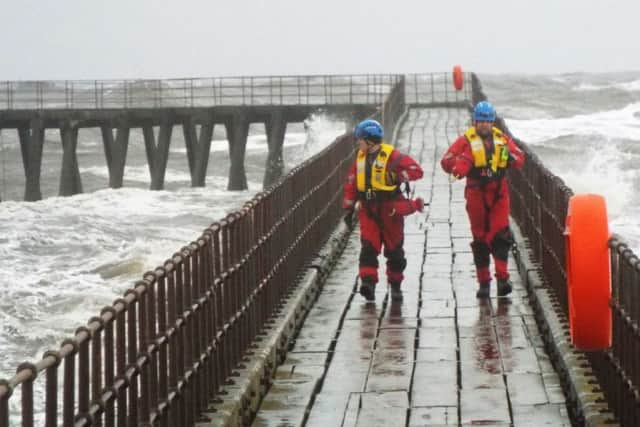Timely safety advice as winter continues to tighten its grip


But, as winter tightens its grip, HM Coastguard is cautioning the public to be vigilant as they venture to the coast.
Whether for an afternoon stroll, walking the dog, fishing or taking part in a maritime hobby, we all need to take care.


Advertisement
Hide AdAdvertisement
Hide Ad“Our beautiful coastline is unique and helped Northumberland win the top tourist destination award recently,” said Coastguard and deputy station officer at Newbiggin-by-the-sea Coastguard Rescue Team, Jonathan Lamberth.
“Beyond that beauty there are many hidden dangers, some of which only come to light when the weather changes.”
Winter is traditionally the time when anglers head for the coast in search of that big winter specimen that everyone talks about for the rest of the year.
The inherent dangers of fishing at the top and bottom of cliffs and exposed rock edges, especially at night, are cause for concern.


Advertisement
Hide AdAdvertisement
Hide Ad“We have tragically lost a number of fishermen along our coast in recent years,” said the Coastguard.
“No one was to blame for any of these tragic incidents, it was just a combination of a number of factors coming together.
“However, a lifejacket is a great piece of kit that could help save your life if you do fall in the water.
“We urge anglers to try and fish as part of a group so that if something should go wrong someone can call for help.
Advertisement
Hide AdAdvertisement
Hide Ad“Cliff tops are perhaps our most dangerous places to fish as they can give way without warning.”
At the top of a cliff, the views can be spectacular but also dangerous.
Don’t become a victim of the selfie culture – many people get themselves into trouble when trying to take a dramatic photo of themselves on a dangerous cliff edge.
The cliffs along the UK coastline are continually eroding.
It’s impossible to predict when the next section might go.
It could be a few small rocks or several thousand tonnes.
The Coastguard has some basic tips to remember:
l Stay well back from the edge
l Keep an eye on children and dogs to make sure they do the same
Advertisement
Hide AdAdvertisement
Hide Adl Make sure you are properly equipped for walking along coastal paths
l Wear sturdy shoes or boots
l Obey any warning signs and don’t climb fences to get to the edge of the cliff
l Don’t attempt to climb up or down cliffs unless you are properly equipped and trained
l Don’t attempt to climb cliffs as a short cut back to the top
Advertisement
Hide AdAdvertisement
Hide Adl Be responsible and don’t take unnecessary risks or let other people in your group do so
The Coastguard is also warning dog owners to take care of their pets while they are at the coast.
They can slip down cliffs and steep places while exploring and they can’t always make their way back.
If they do, don’t try to rescue them – they often come back safe and well on their own but you might not.
Advice includes:
l Always keep your dog on a lead near cliffs
l Don’t try to rescue a dog if it is being swept out to sea. You’re likely to get into difficulty yourself
l If your dog gets into trouble, call 999 and ask for the Coastguard